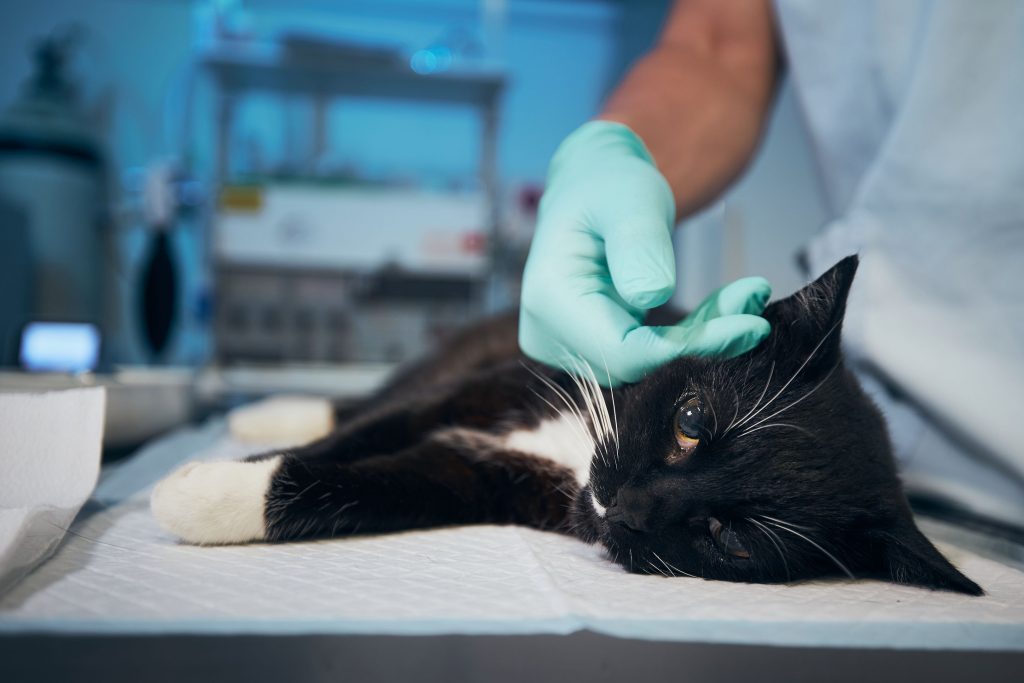
Urgent or Emergency Care: Which Does My Pet Need?

When your pet shows signs of an illness or has experienced an obvious injury, you want help fast. Knowing how to handle a pet’s need for urgent or emergency care before that critical moment arises can save precious time when your pet requires urgent or life-saving treatment.
During regular business hours, our team at Arlington Animal Hospital can discuss your pet’s symptoms and help you determine what your next course of action should be. But what if it’s after hours or a day when our office is closed? How do you know if your pet needs urgent care or when to call an emergency vet?
What is Veterinary Urgent Care?
Veterinary urgent care fills the gap between awaiting an appointment with your pet’s regular veterinarian or seeking life-saving treatment at a veterinary emergency room. The main distinction: urgent care is for issues that don’t appear to be life-threatening.
Urgent care practices will treat minor injuries and illnesses after hours—and typically at a fraction of the cost of going to an emergency hospital.
Signs that your pet needs urgent care include:
- Coughing, sneezing, runny nose
- Eye redness or discharge
- No appetite/not drinking
- Constipation
- Mild vomiting or diarrhea
- Limping
- Pain
- Skin problems like rashes, infections, hives
- Ear infections
- Minor wounds, cuts, or abrasions
- Anal gland problems
When to Call an Emergency Vet
Veterinary emergency hospitals that provide 24-hour care and monitoring are best equipped to handle life-threatening illnesses and injuries. These facilities have the ability to provide supplemental oxygen, blood transfusions, emergency surgeries, and other life-saving measures. Recognizing the signs of a pet emergency is critical when minutes count.
Contact or go to the nearest emergency veterinary hospital if your pet is experiencing any of the following:
- Known ingestion of a toxin or poison
- Choking
- Severe respiratory distress, such as trouble breathing
- Seizures
- Severe trauma such as being hit by a car or attacked by another animal
- Excessive bleeding
- Obvious fractures
- Loss of consciousness
- Collapse
- Deep, penetrating wounds
- Allergic reactions
- Heatstroke
- Distressed labor/unable to deliver puppies or kittens
- Severe vomiting or diarrhea
Help is Just a Phone Call Away
Anytime your pet displays concerning symptoms or has experienced an injury, it’s better to err on the side of caution and seek treatment right away. Contact us (if it’s during business hours), or call the nearest urgent or emergency veterinary hospital for further instructions. As trained professionals, we can help you choose the best care option for treating your pet’s illness or injury.
Contact Us!
2301 Columbia Pike #G-1, Arlington, VA 22204
Phone: (703) 920-5300
Fax: (703) 685-8860
Email: info@myarlingtonvet.com
Office Hours
-
Monday
8 a.m. – 8 p.m.
-
Tuesday
8 a.m. – 8 p.m.
-
Wednesday
8 a.m. – 6 p.m.
-
Thursday
8 a.m. – 6 p.m.
-
Friday
8 a.m. – 6 p.m.
-
Saturday
8 a.m. – 2 p.m.
-
Sunday
CLOSED
- Doctors’ hours are by appointment only.



